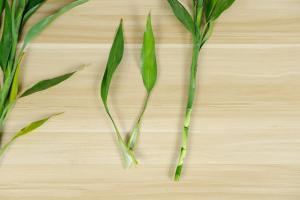Is Milorganite Good for Vegetable Plants?
Milorganite is a type of fertilizer made from processed sewage sludge. Despite its unconventional origins, it has become a popular choice for many gardeners due to its effectiveness and affordability. But is milorganite good for vegetable plants? Let's take a closer look.
What is Milorganite?
Milorganite is made from the treated wastewater of a Milwaukee sewage treatment plant. The wastewater is treated to remove harmful pathogens and heavy metals, and then the resulting solids are dried and processed into granules. These granules are rich in nutrients that are beneficial for plant growth, including nitrogen, phosphorus, potassium, and iron.
Benefits of Using Milorganite on Vegetable Plants
There are several benefits to using milorganite as a fertilizer for vegetable plants:
Natural and Organic: Milorganite is a natural and organic fertilizer that is made from recycled materials. It does not contain synthetic chemicals that can be harmful to plants or the environment.
Safe for People and Pets: Because milorganite is made from treated wastewater, it is safe for people and pets to be around. There is no risk of exposure to harmful chemicals or pathogens.
Slow-Release: Milorganite is a slow-release fertilizer, which means that it releases nutrients into the soil over a period of months. This provides a steady supply of nutrients to vegetable plants, which can lead to healthy growth and better yields.
Improves Soil Quality: Milorganite is rich in organic matter, which can improve the quality of the soil. This can lead to better water retention, drainage, and aeration, which can benefit vegetable plants.
How to Use Milorganite on Vegetable Plants
If you're interested in trying milorganite on your vegetable plants, here are some tips to keep in mind:
Apply in Spring: Milorganite should be applied in the spring, before planting your vegetable garden. This will give the fertilizer time to release nutrients into the soil before the plants start to grow.
Use the Right Amount: The amount of milorganite you should use depends on the size of your vegetable garden. As a general rule, you should apply one pound of milorganite per 100 square feet of garden space.
Spread Evenly: Milorganite should be spread evenly over the soil surface. You can use a spreader or sprinkle it by hand. Make sure to water the area well after applying the fertilizer.
Avoid Contact with Leaves: Milorganite should not come into contact with the leaves or stems of your vegetable plants, as it can burn them. Make sure to keep the fertilizer at least a few inches away from the plant base.
Conclusion
Milorganite is a safe and effective fertilizer for vegetable plants. Its slow-release formula and organic composition make it an ideal choice for gardeners who want to promote healthy growth and good yields. Just make sure to use it properly, and your vegetable garden will thank you!

 how many times do yo...
how many times do yo... how many planted tre...
how many planted tre... how many pine trees ...
how many pine trees ... how many pecan trees...
how many pecan trees... how many plants comp...
how many plants comp... how many plants can ...
how many plants can ... how many plants and ...
how many plants and ... how many pepper plan...
how many pepper plan...





























